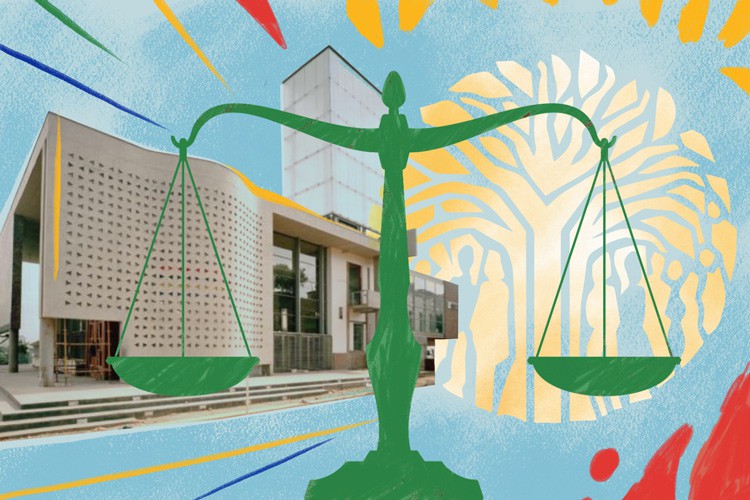
26 June 2025
The Bloemfontein High Court has ordered the Free State government to dissolve Ngwathe Local Municipality’s council. Illustration: Lisa Nelson
The Bloemfontein High Court has ordered the dissolution of the Ngwathe Local Municipality. Citing the municipality’s dismal record on providing services, its managerial instability, and its mounting debt, the court ruled that the Free State provincial government intervene as soon as possible.
The case was brought by Afriforum on behalf of concerned residents.
When municipalities fail to fulfil their “executive obligation”, the Constitution allows provincial governments to intervene, including by dissolving the municipal council.
The Municipal Finance Management Act also permits the province to intervene if a municipality is facing serious financial challenges or if the Auditor-General has flagged serious financial issues with the municipality.
Afriforum argued that the Free State premier, the provincial cabinet, and several MECs (for cooperative governance, finance, and economic development) were not doing enough, given the severity of the state of Ngwathe Municipality.
Afriforum sought to compel the province to dissolve the municipal council and develop a recovery plan to turn the municipality around. It also cited the local municipal manager and the Fezile Dabi District Municipality as respondents.
The municipality, however, argued that intervention was not warranted, and it should only be ordered to report to the court on what steps it is taking to remedy any non-compliance with its legal obligations.
The province also argued against intervention, saying it was already doing everything it should be doing to support and monitor the municipality.
Judge Johannes Daffue summarised the challenges faced by the municipality, which were not in dispute. Ngwathe Local Municipality owes Eskom R2-billion. It also owes millions to the Department of Water and Sanitation and other service providers. It has repeatedly received qualified audits from the Auditor-General. Its high turnover of municipal managers since 2022, indicates instability. Its debt collection rate has continued to plummet and is below the norm. Government’s Blue Drop and Green Drop reports are damning about the municipality’s supply of clean drinking water and its failure to address sewage flowing into the Vaal River.
Citing a judgment of the Constitutional Court, Judge Daffue said there was no need for the total collapse of a municipality before an intervention was warranted. Even if a municipality failed to meet one obligation, this would warrant intervention. In this case, intervention was due to its “dismal record of service delivery, its managerial instability, its insolvent status, and mounting debt”, said Judge Daffue.
The judge said Ngwathe Municipality had failed to meet several of its constitutional obligations to its residents, including the provision of the most basic services; promoting a safe and healthy environment; adequately managing its administration, including budgeting; and promoting social and economic development.
Judge Daffue said the province must intervene and must implement a recovery plan, dissolve the municipal council, and adopt a new budget.
He ordered the municipality and the province to report to the court every three months on progress.